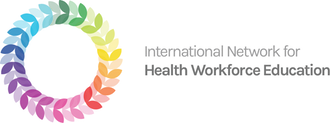An emphasis on vertical health programs has left national health systems underdeveloped or crippled to deal with increasing incidences of pandemics, non-communicable diseases, antimicrobial resistance or benefit fully from technological advances. Further, current approaches to strengthening healthcare systems concentrates heavily on patient care and quality of services without sufficiently supporting and empowering health workers. Hence, health workers are viewed primarily as vehicles to be utilized to achieve these desired patient care results instead of stakeholders in the development of sustainable healthcare systems. This myopic view of patient care disjointed from the realities of healthcare workers leads to short term solutions and eventual failure of the healthcare system. Therefore, legal awareness and literacy of health workers, including rights and responsibilities, regulations, legislations and accountability mechanisms, will fill this gap and allow for effective participation of health workers in national health system strengthening.
Consequently, this working group seeks to:
- Identify trends that have led to weak national health system and can benefit from legal intervention
- Analyze areas of legal awareness and literacy that would be beneficial for health workers
- Determine effective entry points and challenges for legal education & literacy both in academia and practice
- Establish parameters for measuring impact and potential for effecting policy change
- Collate best practices if available
- Create a community of educators, researchers and service providers for knowledge sharing, awareness raising and developing relevant reports, policy briefs, guidelines and tools for implementation and impact measurement
Join the Working Group
Chair: Soosmita Sinha, Founder & President, Health Law Institute
Soosmita holds a JD from the University of Michigan, Ann Arbor and a B. Pharm from Ahmadu Bello University, Zaria, Nigeria. She has professional experience in both public and private sectors from different geographical locations for over 15 years - Nigeria, United States and the United Nations in Geneva. And, has worked in different capacities - academic, researcher, advocate, volunteer, service provider and health and human rights lawyer - at various institutions including the World Health Organization, Office of the High Commissioner of Human Rights, Amnesty International, Walgreens, University of Michigan, Duquesne University and Ahmadu Bello University. She is passionate about ensuring universal access to healthcare and hence founded the Health law Institute that aims to strengthen health systems by improving health workers' legal awareness and literacy to enable them better address legal, regulatory and human rights challenges in their day to day work.


